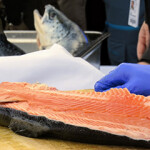UK economy enters recession, hospitality sector calls for greater intervention

Trade groups have welcomed a relief scheme targeted at the U.K. foodservice sector announced by U.K. Chancellor Jeremy Hunt on 17 November, but said they remain concerned about the country's economic situation.
Due to a revaluation process, U.K. hospitality businesses were facing a tax increase of GBP 900 million (USD 1 billion, EUR 1 billion), on top of the GBP 2.7 billion (USD 3.2 billion, EUR 3.1 billion) the sector currently pays in business rates. Hunt said the relief scheme is worth GBP 14 billion (USD 16.6 billion, EUR 16 billion) in tax relief.
The U.K. government will introduce a three-year relief scheme in 2023 "to support ratepayers facing increases in their business rates bill due to the revaluation,” the U.K. Department for Levelling Up, Housing, and Communities said in a statment.
Hunt said he hopes the move will “soften the blow on businesses" caused by the revaluation.
“Nearly two-thirds of properties will not pay a penny more next year and thousands of pubs, restaurants, and small high street shops will benefit,” Hunt said in a recent speech.
UKHospitality Chief Executive Kate Nicholls said in a press release the relief is necessary as her industry faces unprecedented challenges, and she praised the government's effort to provide subsidies for high energy prices through April 2023.
“I'm pleased that the chancellor has listened to the vast majority of UKHospitality’s proposals on business rates, covering a freeze in the multiplier, extended reliefs, and no downward transition. This means those seeing their valuations decrease will see the benefit in their bills immediately, at the same time as increases are capped,” she said. “However, it remains the case that the current system is outdated and not fit-for-purpose. The government made a manifesto commitment of root and branch review and it’s essential that this delivered as soon as possible."
Nicholls warned Hunt did not communicate a plan for economic growth, “despite him recognizing its importance."
“There is nothing to give firms confidence, let alone invest, and we need to see an urgent plan for economic growth and how business will be at the center of that. UKHospitality stands ready to work with Government to develop such a plan and on the essential package of energy support post-April," Nicholls said. “Survival this winter is the priority for venues across the country and there is the very real possibility that a significant proportion of our sector will not survive the winter."
Around half of the fish-and-chip shops in the U.K. are affected by the changing business rates, according to National Federation of Fish Friers President Andrew Crook.
“Many of these are restaurants who were the worst-hit throughout the COVID pandemic and are already trying to cope with inflated wholesale prices of fish and high energy bills, not to mention the tariff on Russian-caught white fish on direct imports, which seems to have been forgotten about by the government and how it uniquely affects my industry,” Crook told SeafoodSource.
Fish-and-chip shops have been impacted by numerous supply chain issues, including higher costs and tariffs, Crooks said.
“The Russian fleet is now currently only producing headed-and-gutted fish, putting more pressure on fillet supply from other sources,” Crook said.
The U.K. is now officially in a recession, the U.K. Office of Budget Responsibility and Hunt confirmed. The OBR has forecast the country’s inflation rate at 9.1 percent for 2022 and 7.4 percent in 2023. However, through government intervention, OBR said the recession will be shallower and inflation will be reduced, Hunt said, and Britain’s economy is forecast to grow by 4.2 percent in 2022.
"In the short-term, as growth slows and unemployment rises, we will use fiscal policy to support the economy,” Hunt said.
Photo courtesy of U.K. Government






Share